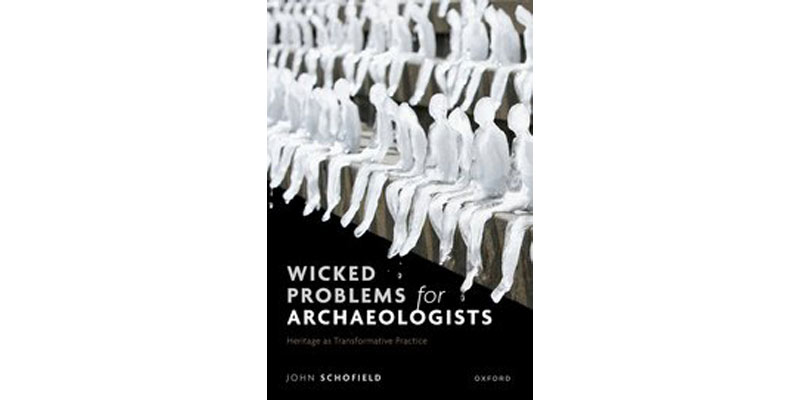Major new publication explores the relevance and purpose of archaeology
In this new book, John Schofield explores novel ways in which archaeology can help to address some of the world's most urgent challenges.

‘Wicked Problems’ were first defined in 1967, as a class of problems which are ill-formulated, where the information is confusing, where there are many clients and decision makers with conflicting values, and where the ramifications in the whole system are thoroughly confusing. The adjective ‘wicked’ describes the mischievous and even evil quality of these problems, where proposed solutions often turn out to be worse than the symptoms. In this new book, Professor John Schofield presents some of the novel ways that archaeology, alongside the closely related field of cultural heritage practice, can contribute to resolving some of the world’s most wicked problems through adopting a small-wins framework. With chapters covering climate change, environmental health, health and wellbeing, social injustice and conflict, the book uses many and diverse examples to explain how studying the past in ways that are creative, bold and transdisciplinary, significant ‘small wins’ can be achieved.
Scholars have already passed opinions on the contributions of this book to the contemporary and future role of archaeology in society.
Professor Brian Head, a political sciences scholar from University of Queensland in Australia, said of the book: 'Archaeology isn’t the first subject that comes to mind when researching wicked problems. Yet, according to this important and intriguing book, archaeology is exactly where we can look to gain small wins that carry us towards resolution. In presenting this case, John Schofield may just have redefined the true purpose of archaeology.'
Professor Ian Lilley (Archaeology, Leiden) describes the book as offering, 'insightful views on wicked problems [while also considering] how archaeologists and heritage practitioners might most productively apply their work to concrete solutions. Rather than making exaggerated claims for his disciplines’ capacities to solve humanity’s existential crises, Schofield instead advocates a pragmatic long game, accumulating ‘small wins’ delivered by savvy disciplinary leaders operating as policy entrepreneurs to nudge government and business in the desired direction. Modest, certainly, in the face of such crises, but it is much better to under-promise and over-deliver than the reverse when the future of humankind is at stake!'
Archaeologist, Professor Þóra Pétursdóttir, University of Oslo, describes Wicked Problems as, 'a timely contribution to the scholarship of contemporary archaeology and heritage studies. Covering topics ranging from climate change and pollution to social justice and wellbeing, Schofield shows why archaeological and deep-time perspectives matter in the present and for the future. A book that deserves a broad readership.'
Finally, Professor Mats Burstrom (Archaeology, Stockholm University) states that: 'Archaeology has the ability to travel through time and to consider contemporary phenomena in relation to the deep history of human existence. According to John Schofield, this gives archaeology nothing less than superpowers in tackling some of today's most pressing questions. In this book he shows how our knowledge of the past actually may help guide the way to a better world.'